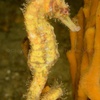
What a beauty! says new Redmap NSW coordinator
This is a great photo of a great seahorse (Hippocampus kelloggi) spotted by a diver near Sydney! It's also quite a special sighting, according to new Redmap NSW coordinator Dr Troy Gaston.



This is a great photo of a great seahorse (Hippocampus kelloggi) spotted by a diver near Sydney! It's also quite a special sighting, according to new Redmap NSW coordinator Dr Troy Gaston.
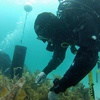
The southerly migration of voracious tropical fish and urchins as oceans warm is threatening precious kelp forests along the east coast of Australia. Read the full story at ABC News.

Citizen science. It’s frequently plugged in the media these days, but what exactly is it, and does it really warrant all the attention? In a nutshell, citizen science is crowdsourcing for science, writes Kieryn Graham at Vaguely Accurate.
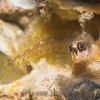
What's been spotted lately around Australia? What happens to the community's sightings and photos of uncommon fish? Read the latest marine news in a short Redmap update.
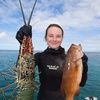
Fishers see amazing things and capture great moments in pursuit of their catch. The Redmap Fisher Photo Competition gives you the opportunity to share and celebrate your favourite fishing memories, with great prizes on offer for two winners in each category! Photos from all types of fishers are warmly welcomed.
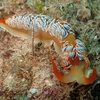
Enter a competition to name this awesome sea slug (nudibranch) and you could win a trip to Perth! Watch the video below and enter the comp at ABC's Radio National.
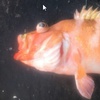
It looks somewhat amusing - an orange fish with bulbous googly eyes. But this Redmap sighting of an eyebrow perch (Hypoplectrodes species) in SE Tasmania is a very special one. It is possibly the first known occurrence of this species so far south!

Redmap Australia is a finalist in the prestigious Australian Museum Eureka Prizes, which celebrate excellence in science! Redmap founder Associate Professor Gretta Pecl said the shortlisting was a welcome acknowledgement of the significant contributions many fishers, divers, boaters and scientists around Australia had made towards understanding the effects of marine climate change.
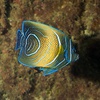
Which fish and marine critters made Redmap's Top 3 sightings list in each state? Find out in the Winter 2016 Redmap newsletter. Also in this edition: read about a Redmap scientist, a seaslug lover, and Redmap's most southern sighting!
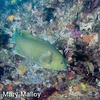
The redthroat emperor, eastern rock lobster and western blue groper all made it onto Redmap's Top 3 lists. Here is a snapshot of Redmap's community data.